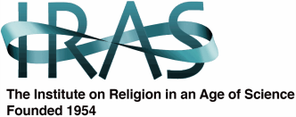WHAT KIND OF PEOPLE ENJOY BEING IRAS MEMBERS?

by Karl Peters
Although science-based technologies impact global human culture, many people are not well aware of how scientists work and the details of significant scientific findings. Absolutist religious leaders and their communities reject significant scientific knowledge, and this rejection encourages a reaction by others against traditional religions. At the same time, some scientists and philosophers have mounted rigorous attacks on traditional religious beliefs. Highly publicized by the media, this conflict has undermined the public trust in both the scientific enterprise and the guidance for life traditionally offered by religion.
In this context, for almost sixty years IRAS has encouraged respectful, constructive dialogue between people from the world’s religious communities and the contemporary sciences, in order to develop sound understandings and well-informed approaches to deal with the numerous problems that face us in our world today.
Members of IRAS share a variety of perspectives and are involved in many different projects. Generally, the membership includes: professional scientists; academics in the sciences, religious studies, social sciences and the humanities; health care professionals; clergy and religious leaders; and those interested in various aspects of religion and science from all walks of life.
More specifically, there are at least five kinds of IRAS members, many of whom fall into more than one of the following descriptions:
Theologians, clergy, and congregants from historical religious traditions who are seeking to understand and express the deeper wisdom and moral guidance of their traditions in a manner that is reasonably consistent with contemporary scientific knowledge and critical scholarship.
Scientists, philosophers, and others with a science-based/naturalistic world view who are exploring how contemporary scientific understandings can contribute to the quest for meaning, values, and hope.
Persons trained in religious studies and the human sciences who strive to better understand how religions, religious institutions, and religious and philosophical orientations of all kinds have evolved and how they function, for better or worse, in the lives of individuals and societies.
People primarily interested in public policy who want to augment their scientific understandings and believe it critical to involve the motivational power of religion to foster the advancement of human and planetary well-being.
People from all walks of life who believe it is important to nurture and engage in a vibrant and respectful dialogue among scientific, religious, and philosophical perspectives, in order to develop greater understanding and appreciation for different approaches relating to culture, knowledge, history, and personal meaning.
Copyright 2018 by The Institute on Religion in an Age of Science
